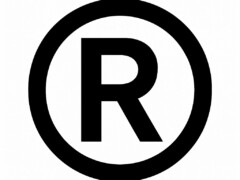In late September 2014, FDA issued revised versions of its proposed produce safety regulations under the Food Safety Modernization Act (FSMA). Of particular relevance to farms with small produce operations, the revisions significantly change which farms would be covered by or exempted from the rules.
As initially proposed, the Produce Safety Rule would have exempted any farm with total food sales of not more than $25,000 on average, per year during the previous three years. Thus, a farm with very small fruit and vegetable sales of $25,000 or less annually would not have qualified for the exemption if its combined annual sales of produce and all other foods (such as grains, dairy, meat or processed foods) exceeded $25,000. In response to criticisms that the rule would have served as a disincentive for diversification of farming operations, FDA has revised the exemption criteria so that only produce sales are counted toward the $25,000 limit.
Similarly, FDA has proposed to count only produce sales, rather than sales of all food, in determining whether a farm is a “small business” (defined as having average annual produce sales not exceeding $500,000) or “very small business” (defined as having average annual produce sales not exceeding $250,000). Under FDA’s proposal, small businesses and very small businesses will have three years and four years, respectively, to comply with the final Produce Safety Rule after it takes effect, whereas all other covered farms will have only two years to comply.
While these revisions make good sense, they do not go as far as some commenters had hoped in that all produce sales, and not just sales of “covered produce,” will be counted in the dollar limits. A covered farm is subject to the Produce Safety Rule’s requirements only with respect to its “covered produce” operations. Covered produce is, generally, fruits and vegetables that are likely to be consumed raw and that will not undergo a kill-step in processing. Thus, for example, a farm that sells less than $25,000 per year of leafy greens and tomatoes (covered produce) will have to comply with the Produce Safety Rule with respect to the greens and tomatoes if it also sells enough potatoes (not covered produce) to bring its total annual produce sales above $25,000.
FDA’s revisions also do not satisfy critics who argued that the eligibility criteria for the qualified exemption (known to many as the Tester-Hagan Amendment) should, likewise, be based on sales of produce or covered produce, rather than sales of all food. Under the Tester-Hagan Amendment, a farm is eligible for a conditional exemption from most requirements of the Produce Safety Rule if its total food sales are less than $500,000 on average, per year, and more than half of its food sales are directly to consumers and/or to restaurants or food retailers located in the same state or not more than 275 miles from the farm. While it would be logical to base eligibility for this qualified exemption on produce sales, rather than sales of all food, FDA cannot make that change unless Congress amends the FSMA statute.
FDA’s revisions also make significant changes to the Produce Safety Rule’s requirements for water quality testing, the use of raw manure soil amendments, and the process for withdrawing and reinstating a farm’s qualified exemption. As these rules will have an enormous impact on covered farms, it is critical that farmers understand what the regulations will require and participate in the rulemaking process. I encourage farmers to read the proposed Produce Safety Rule, as well as the revisions. Interested parties may submit comments on the revisions to FDA by December 15, 2014.















